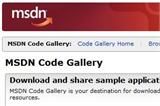Microsoft Announces $44.6 Billion Yahoo Acquisition Talks
February 1st news of NetEase Science and Technology: Just after Google, the search giant, released its disappointing fourth quarter financial report to investors, Microsoft Corporation made a bid for acquiring Yahoo. It planned to acquire Yahoo with cash and stock at USD31 per share and a total value of USD44.6 billion.
In the statement, the CEO of Microsoft Corporation, Ballmer, said: "We believe that our combination with Yahoo will bring better value to our shareholders and provide better choices and innovation to our customers and industry partners."
Microsoft offered optional acquisition methods for Yahoo's shareholders who could choose to accept cash or partly cash plus partly Microsoft stock. In general, half of the purchase amount paid to Yahoo's shareholders would be cash and the other half Microsoft stock. The acquisition price was 62% higher than the closing price of Yahoo stock on Thursday, which was USD19.18 per share.
When announcing this transaction, Microsoft also included a letter from Microsoft to Yahoo's board of directors. Microsoft said the reason for acquiring Yahoo was mainly to obtain its online advertising business. Besides, Microsoft stated in the statement that it believed that after the merger of the two companies, they would earn at least USD1 billion annually from four markets.
Jon Markman from Markman Capital Insight said: "Microsoft shareholders might feel that the offer is too high, but it's like News Corporation acquiring Dow Jones; you have to pay a certain premium for market-leading big brands."
Due to being unable to compete with its competitor Google in the search market, Yahoo's stock fell by 38% in the past three months. Market analysts believed that the possibility of Yahoo becoming an acquisition target for other companies had increased.
After Microsoft announced this news before the opening of the market on Friday, Yahoo's stock surged by 56% to reach USD29.95 per share in pre-market trading. Meanwhile, U.S. stock index futures also rose sharply as a result.




